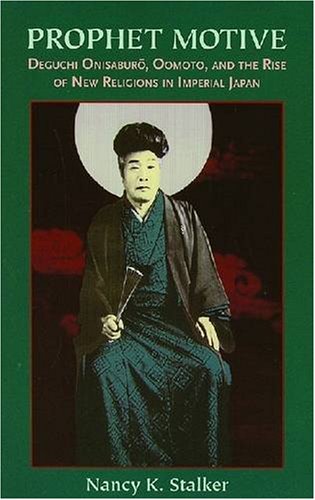Prophet Motive: Deguchi Onisaburo, Oomoto, and the Rise of New Religions in Imperial Japan Book by Nancy Stalker
From the 1910s to the mid-1930s, the flamboyant and gifted spiritualist Deguchi Onisaburô (1871–1948) transformed his mother-in-law’s small, rural religious following into a massive movement, eclectic in content and international in scope. Through a potent blend of traditional folk beliefs and practices like divination, exorcism, and millenarianism, an ambitious political agenda, and skillful use of new forms of visual and mass media, he attracted millions to Oomoto, his Shintoist new religion. Despite its condemnation as a heterodox sect by state authorities and the mainstream media, Oomoto quickly became the fastest-growing religion in Japan of the time.
In telling the story of Onisaburô and Oomoto, Nancy Stalker not only gives us the first full account in English of the rise of a heterodox movement in imperial Japan, but also provides new perspectives on the importance of "charismatic entrepreneurship" in the success of new religions around the world. She makes the case that these religions often respond to global developments and tensions (imperialism, urbanization, consumerism, the diffusion of mass media) in similar ways. They require entrepreneurial marketing and management skills alongside their spiritual authority if their groups are to survive encroachments by the state and achieve national/international stature. Their drive to realize and extend their religious view of the world ideally stems from a "prophet" rather than "profit" motive, but their activity nevertheless relies on success in the modern capitalist, commercial world.
Unlike many studies of Japanese religion during this period, Prophet Motive works to dispel the notion that prewar Shinto was monolithically supportive of state initiatives and ideology.
280 pages
Impossible de charger la disponibilité du service de retrait


